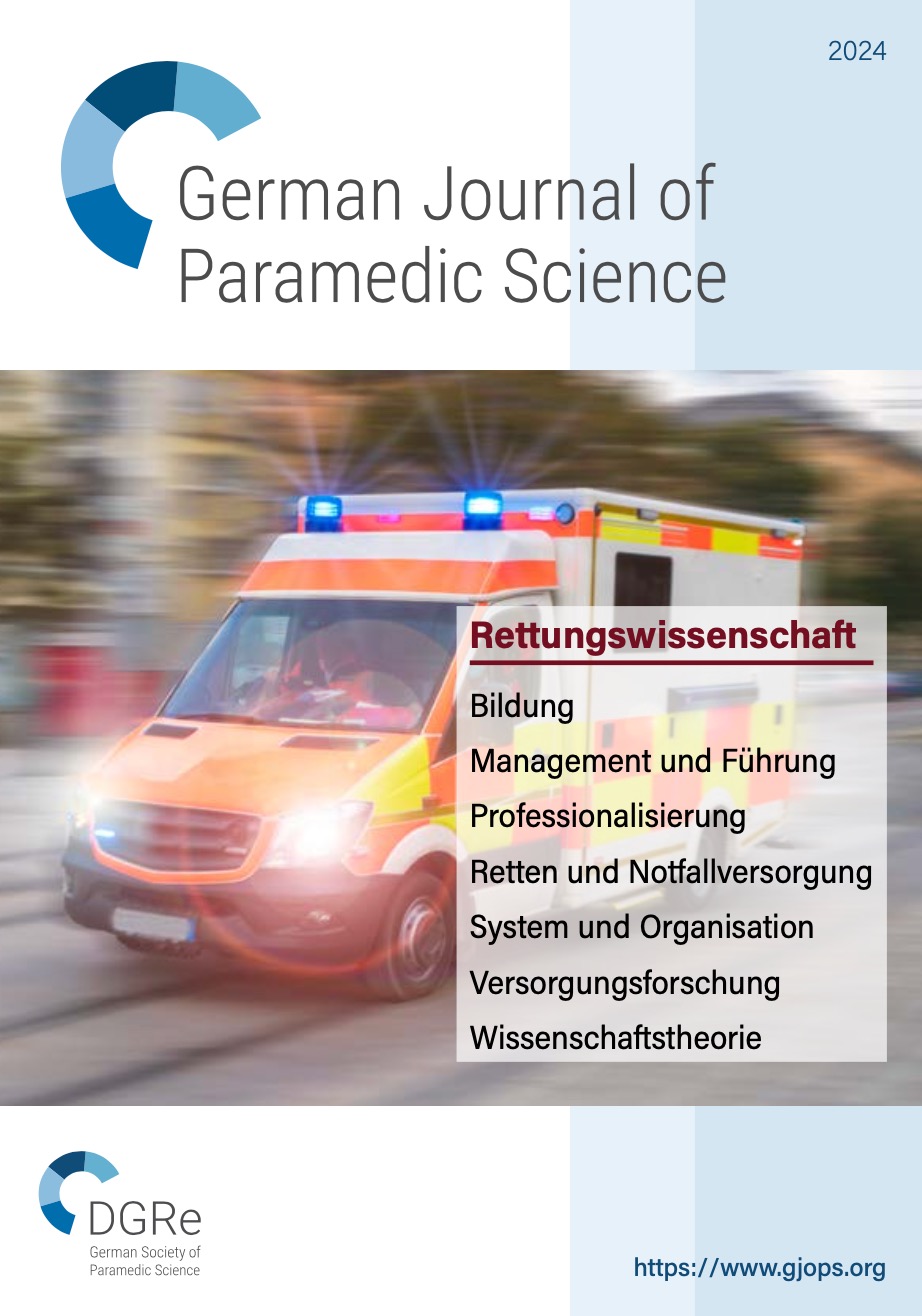Factor-analytical validation of the second trend study on professional loyalty among paramedic students
DOI:
https://doi.org/10.25974/gjops.v1i1.27Keywords:
Validation Study, Satisfaction, Professional Loyalty, Factor Analysis, CFAAbstract
ackground: The second Professional Loyalty Study (BTS 2) focuses on the professional loyalty of prospective paramedics in Germany and explores the reasons for potential career changes as well as job satisfaction. The aim of this validation study is to thoroughly investigate the "Satisfaction" item battery of BTS 2 through confirmatory factor analysis in order to make data-based statements about its validity, thereby clarifying the accuracy of this measurement.
Methods: Using the complete sample of BTS 2 (n = 1340), after examining the distribution, internal consistency, and correlations, a confirmatory factor analysis and mis-specifications at the item level are calculated.
Results: Cronbach's alpha is reported as α = .813. All items show skewness close to zero, except for item C001_06 (-1.39). For kurtosis, all items have values close to 3, except for C001_06 (4.95) and C001_08 (1.75). There are no correlations > 0.7 and no negative variances. Fit indices of the CFA are: RMSEA = 0.131, SRMR = 0.068, CFI = 0.915, and TLI = 0.854.
Discussion: Significant missspecifications are evident, and the model cannot be considered
valid. The strength of this validation study lies in its considerable sample size, which suggests adequate statistical power. The structure of the item battery itself, specifically that a factor consists of only two items, limits the methodological efficacy of the Confirmatory Factor Analysis (CFA). While the analyzed item battery can be used descriptively based on the informative value of individual items, it cannot be understood as a psychometric construct.
Conclusions: There is nothing against conducting a descriptive analysis of the individual items within the scope of their respective informative value, as each item stands on its own. However, the item battery is not capable of reflecting satisfaction as a psychometric scale. For the new edition of the BTS, an iterative redesign supported by experts is recommended.
Downloads
Published
Versions
- 2025-01-11 (4)
- 2024-08-10 (3)
- 2024-08-10 (2)
- 2024-08-09 (1)
License
Copyright (c) 2024 Christian Elsenbast, Thomas Hofmann

This work is licensed under a Creative Commons Attribution-ShareAlike 4.0 International License.
We publish open access under the Creative Commons BY-SA 4.0 licence (https://creativecommons.org/licenses/by-sa/4.0/?ref=chooser-v1).
Content may be redistributed and reprocessed (including for commercial purposes), provided that the original source is cited and the same licence conditions apply.






